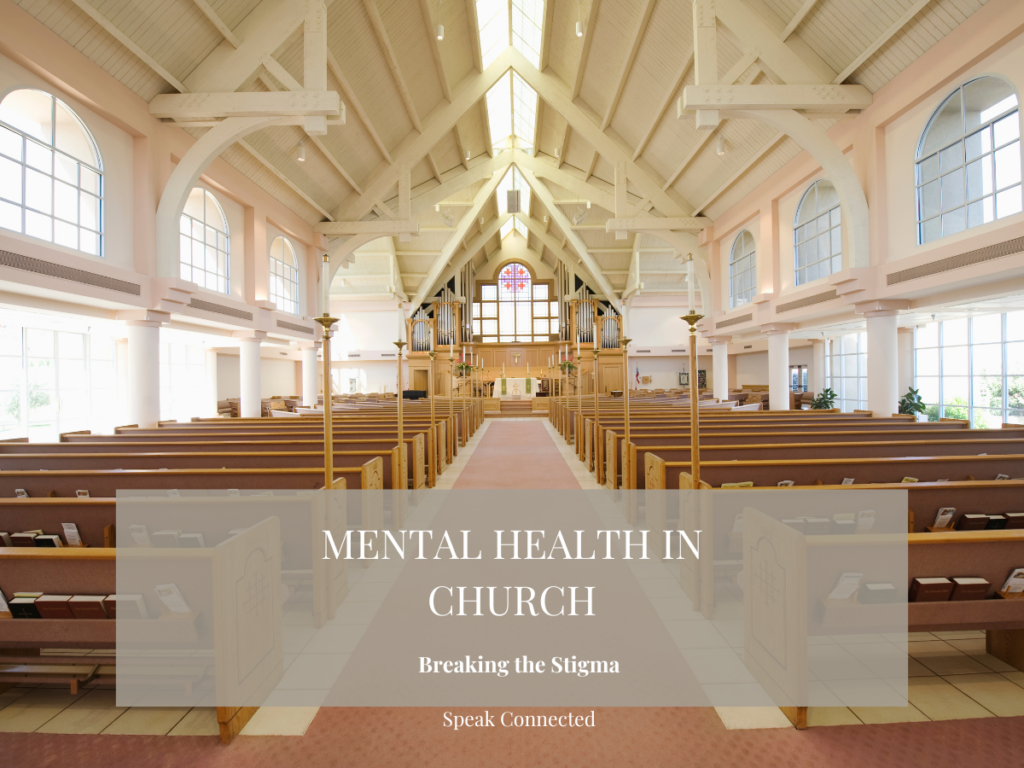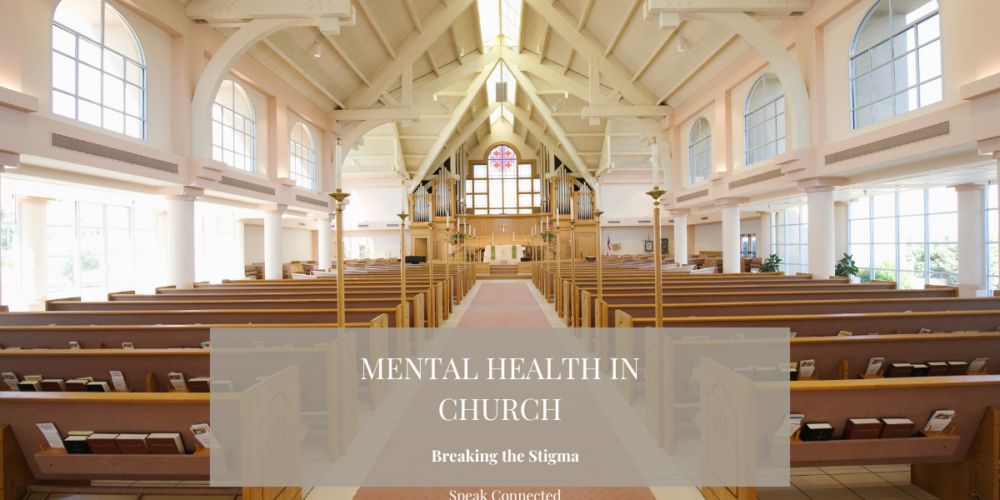
Introduction to the Stigma
Mental health is a subject often shrouded in stigma, especially within the context of Christian communities. Despite the growing global conversation around mental wellness, many churches hesitate to acknowledge mental health issues due to deeply ingrained biases, theological misunderstandings, and cultural taboos. Historically, discussions surrounding mental health have been dismissed or trivialized as a lack of faith or a spiritual deficit. This stigma not only alienates individuals who are struggling but also hinders the church’s mission to embody Christ’s compassion and love.
This blog unpacks the roots of mental health stigma within Christian communities, explores biblical perspectives on mental wellness, and offers actionable strategies for churches to become safe spaces for open dialogue about mental health. Through mutual understanding, education, and faith, churches can play a pivotal role in breaking the stigma and fostering an inclusive community for all.
The Impact of Stigma on Individuals and the Church Community
The reluctance to address mental health openly often has significant consequences for individuals and the larger church community:
Isolation and Fear Among Individuals
For those facing anxiety, depression, or other mental health challenges, the fear of being judged or misunderstood by their community can be overwhelming. Many choose to live in silence, which exacerbates their struggles. This silence often stems from misconceptions—such as the belief that mental health issues arise solely from a lack of faith or prayer.
Theological Misconceptions
Certain mistranslations of scripture or limited theological frameworks have contributed to a perception that mental health struggles are signs of spiritual weakness. For example, challenges like depression may be misinterpreted as a failure to embody the “joy of the Lord,” discouraging individuals from seeking therapeutic or medical intervention.
Diminished Community Support
When mental health topics are sidelined, an essential opportunity for communal support and growth is lost. A lack of open conversation creates divisions and prevents church communities from supporting those who need help most.
By failing to address mental health, churches risk alienating members, especially younger generations, who increasingly value openness and authenticity.
Biblical Perspectives on Mental Health
Contrary to the stigma surrounding mental health, the Bible contains numerous passages that highlight the importance of emotional well-being, empathy, and community support. Scripture repeatedly emphasizes the holistic care of individuals—body, mind, and spirit.
God’s Care for Our Whole Being
Proverbs 17:22 reminds us that “A cheerful heart is good medicine, but a crushed spirit dries up the bones.” This verse acknowledges the tangible effects of emotional states on physical well-being, asserting that mental health is intertwined with overall health.
Similarly, Psalm 34:18 declares, “The Lord is close to the brokenhearted and saves those who are crushed in spirit.” These words reflect God’s unwavering proximity to those in anguish and reaffirm the importance of compassion and understanding.
Jesus’ Ministry of Healing
The earthly ministry of Jesus often focused on holistic healing. From restoring sight to comforting the mourning, Christ modeled empathy and care, demonstrating that addressing human suffering is central to the faith. His interactions with individuals like the woman at the well (John 4) showcase the importance of addressing personal struggles with dignity and care.
These biblical principles provide a foundation for churches to create spaces that prioritize mental health, rooted in love and understanding rather than judgment.
Breaking the Silence: Stories of Transformation
One of the most effective ways to combat stigma is through sharing personal testimonies. Stories of individuals who have navigated mental health challenges can inspire hope, foster understanding, and normalize these conversations within church communities.
A Testimony of Renewal
Consider the story of Lisa, a devoted church member who struggled with severe anxiety after years of silently suffering. Lisa’s local church launched a small mental health support group that combined scripture study with conversations about therapy and self-care. The group allowed Lisa to share her experiences without fear of judgment. Through this intersection of faith and mental health, Lisa found new strength, relief, and renewed connection with her community.
The Role of Pastoral Support
Pastors and church leaders who openly discuss their own mental health journeys can be instrumental in reshaping the narrative. When leaders acknowledge their personal struggles, they validate the experiences of their congregation and set a powerful example of vulnerability and resilience.
Practical Steps for Churches to Foster Mental Health Awareness
Church leaders and members hold the power to instigate cultural change by actively dismantling the stigma surrounding mental health. Here are tangible strategies to promote inclusivity and understanding:
1. Educate Through Sermons and Workshops
Pastors can weave mental health discussions into sermons, using scripture to emphasize God’s care for emotional well-being. Hosting workshops with mental health professionals who align with Christian values is another way to provide education and resources.
2. Launch Support Groups
Offer support groups where individuals can share their challenges safely. Combining biblical reflection with open discussions about mental health normalizes these conversations and strengthens community bonds.
3. Provide Access to Professional Resources
Collaborate with Christian counselors, therapists, and mental health professionals to establish a referral network. Ensure your church has a readily available list of trusted experts.
4. Create Clear Messaging
Church communications—whether in bulletins, newsletters, or on social media—should list mental health resources and affirm that the church embraces everyone, regardless of their struggles.
5. Prioritize Emotional Well-Being for Leaders
Church leaders frequently bear significant emotional burdens. Providing counseling services and mental health resources for pastoral staff fosters a healthier, more sustainable ministry.
Changing the Narrative
When churches actively engage in conversations about mental health, they foster a culture of empathy, inclusivity, and unconditional love. The potential benefits for both individuals and the broader faith community are significant.
Strengthened Relationships
Addressing mental health fosters deeper relationships among congregants, bound by mutual understanding and shared healing journeys.
Increased Credibility Among Younger Generations
Younger Christians often grapple with reconciling their faith with modern concerns. Churches that address mental health openly are more likely to resonate with younger generations, who value transparency and authenticity.
A Reflection of Christ’s Compassion
Normalizing mental health discussions allows churches to better reflect the compassion of Christ, ensuring a welcoming space for all individuals, regardless of their struggles.
Start the Conversation Today
Breaking the stigma surrounding mental health in the church requires intentionality, compassion, and education. By addressing this critical issue head-on, churches can embody the inclusive and supportive love of Christ.
To take the first step, consider facilitating a mental health workshop, starting a support group, or introducing a sermon series dedicated to emotional wellness. Together, we can create church communities where mental health is embraced, not hidden, and where every individual feels seen, valued, and loved.







[…] Breaking the Stigma: Talking About Mental Health in the Church […]